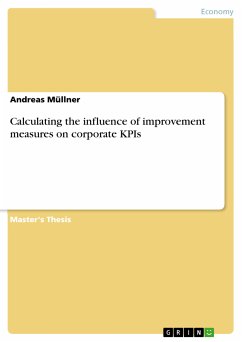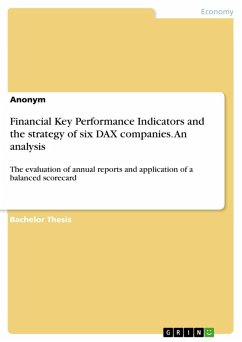Master's Thesis from the year 2004 in the subject Business economics - Controlling, grade: A+, University at Albany, State University of New York, language: English, abstract: In order to do justice to the increased requirements on project and business controlling, there is a need for a systematic approach tailored to the corporation involved. Many corporations have been shown to prioritize improvement measures insufficiently, if at all, despite increased requirements on the economic viability of projects. Since resources are limited in all companies, improvement measures with the highest relative output should be given preference. The usual methods used up to now have been either inappropriate or are no longer sufficient. The Value Analyzer is a method-supported tool for estimating the expected improve¬ment of key performance indicators as a part of a general improvement in corporate performance. This makes it easy to focus on worthwhile measures and supports a general economic calculation to base a go/no go decision on before the start of an implementation project. Based on general key performance indicators, specific scenarios can be created and then altered and/or simulated by changing the parameters or factors of influence. This is all based on a three-level principle in the calculation model: . Definition of a primary goal, KPI (key performance indicator, for example inventory level) . Breakdown into part goals, KPI elements (performance indicator element, for example finished products inventory level) . Determination of appropriate measures for improving the part goal In the calculation of business scenarios that follows, the exact impact of enablers and the optimal combination of appropriate measures can be revealed, or possible measures can be prioritized according to specific aspects (e.g. effort in implementation). The more complex the situation, the higher the value added from the Value Analyzer's structured solution.
Dieser Download kann aus rechtlichen Gründen nur mit Rechnungsadresse in A, B, BG, CY, CZ, D, DK, EW, E, FIN, F, GR, HR, H, IRL, I, LT, L, LR, M, NL, PL, P, R, S, SLO, SK ausgeliefert werden.
Hinweis: Dieser Artikel kann nur an eine deutsche Lieferadresse ausgeliefert werden.









